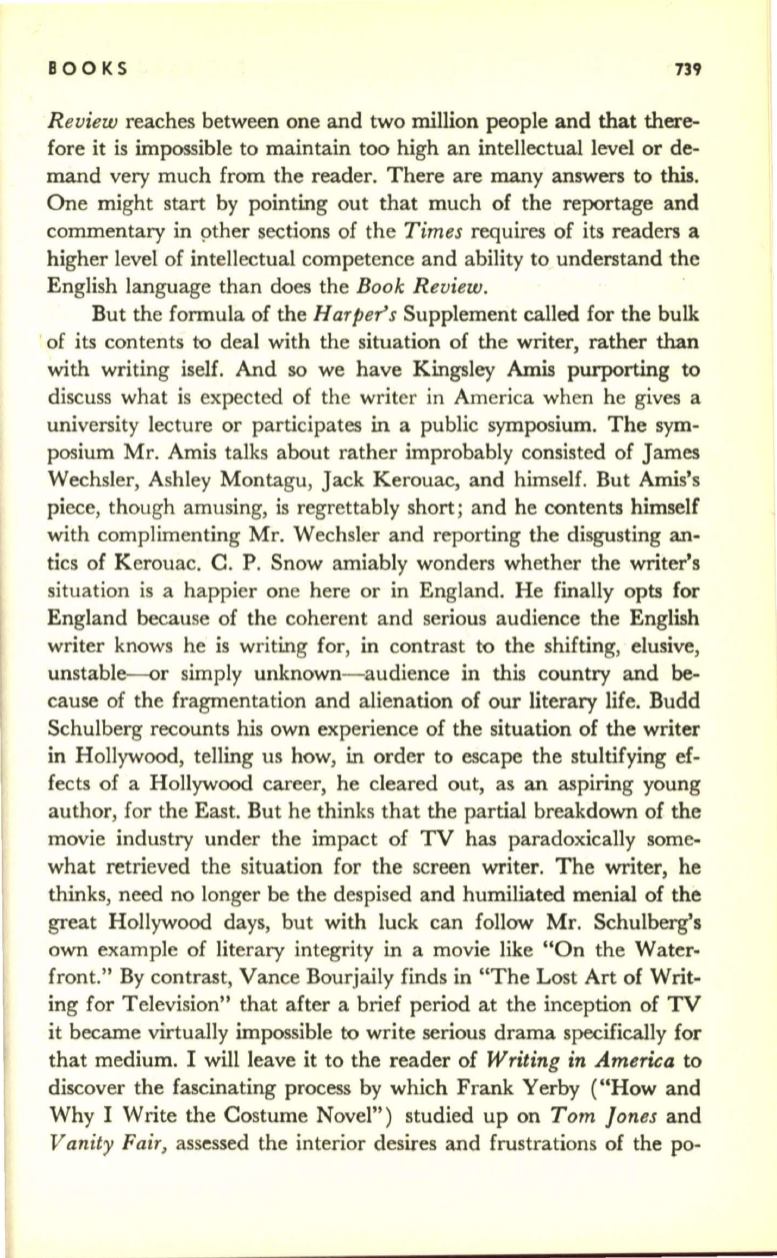
BOO KS
739
Review
reaches between one and two million people and that there–
fore it is impossible to maintain too high an intellectual level or de–
mand very much from the reader. There are many answers to
this.
One might start by pointing out that much of the reportage and
commentary in 9ther sections of the
Times
requires of its readers a
higher level of intellectual competence and ability to understand the
English language than does the
Book Review.
But the formula of the
Harpers
Supplement called for the bulk
of its contents
to
deal with the situation of the writer, rather than
with writing iself. And so we have Kingsley
Amis
purporting to
discuss what is expected of the writer in America when he gives a
university lecture or participates in a public symposium. The sym–
posium Mr. Amis talks about rather improbably consisted of James
Wechsler, Ashley Montagu, Jack Kerouac, and himself. But Amis's
piece, though amusing, is regrettably short; and he contents himself
with complimenting Mr. Wechsler and reporting the disgusting an–
tics of Kerouac. C. P. Snow amiably wonders whether the writer's
situation is a happier one here or in England. He finally opts for
England because of the coherent and serious audience the English
writer knows he is writing for, in contrast to the shifting, elusive,
unstable--or simply unknown-audience in this country and
be–
cause of the fragmentation and alienation of our literary life. Budd
Schulberg recounts his own experience of the situation of the writer
in Hollywood, telling us how, in order to escape the stultifying
ef–
fects of a Hollywood career, he cleared out, as an aspiring young
author, for the East. But he thinks that the partial breakdown of the
movie industry under the impact of TV has paradoxically some–
what retrieved the situation for the screen writer. The writer, he
thinks, need no longer be the despised and humiliated menial of the
great Hollywood days, but with luck can follow Mr. Schulberg's
own example of literary integrity in a movie like "On the Water–
front." By contrast, Vance Bourjaily finds in "The Lost Art of Writ–
ing for Television" that after a brief period at the inception of TV
it became virtually impossible to write serious drama specifically for
that medium. I will leave it to the reader of
Writing in America
to
discover the fascinating process by which Frank Yerby ("How and
Why I Write the Costume Novel") studied up on
Tom Jones
and
Vanity Fair,
assessed the interior desires and frustrations of the po-


